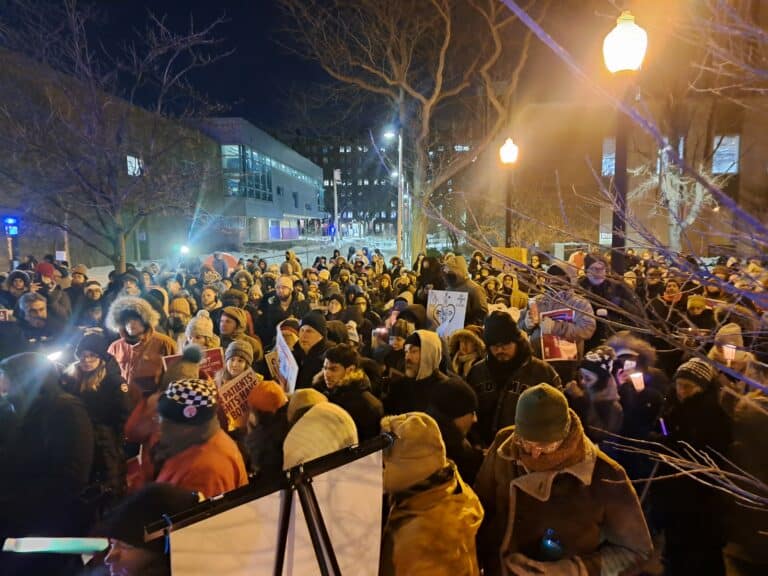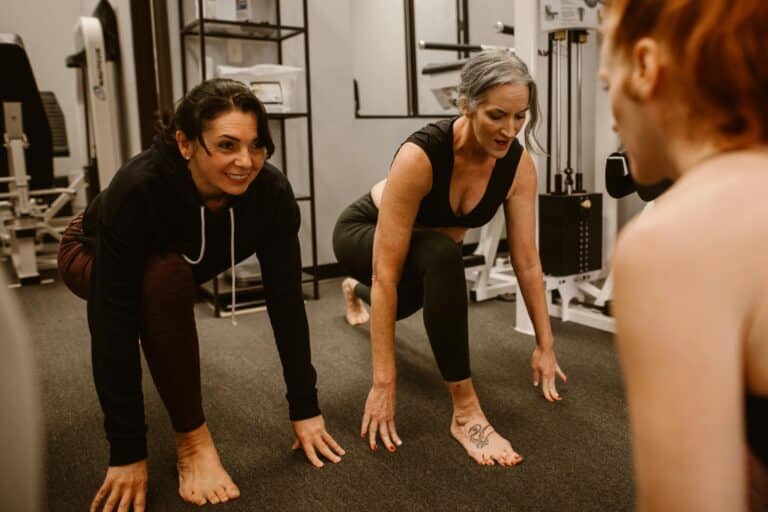Since the end of January, Isa Sanchez, a senior at Whitney Young High School, had been working on her senior project: choreographing a dance to the song “Dreams” by The Cranberries. The dance involves more than a dozen performers, but Illinois canceled in-person school before her group had a chance to perform it.
“I wanted the story of the dance to capture how young we are with big dreams for the future,” Sanchez says. However, most 2020 graduates’ dreams have been put on hold due to COVID-19 — at least for now. In place of their dreams, stress and anxiety loom large for some.
When Chicago Public Schools canceled classes, Sanchez says, “It was definitely disappointing, but at the time we didn’t think it was forever. As news came out in the media it became nerve-wracking because we knew there was less and less of a chance of going back.”
The disappointment and disruption from the coronavirus has been especially hard for teenagers, caught in limbo at a time when they are ready to launch.
Like Sanchez, many teens are wading through complicated emotions right now. They have had to adjust to online learning, isolate from their friends and erase meaningful events from their calendars. Parents, who are balancing work and remote learning schedules, are trying to find ways to help their children cope with the stress and mental health fallout resulting from the pandemic.
Teens in transition
COVID-19 brings with it a set of newfound fears at an age when young people tend to feel invincible. When college campuses shut down, some students were afraid to take a plane home for fear of catching COVID-19, and some teens worry about venturing outside of their home and fear for family members who need to go out.
“Suddenly their safety and security is being threatened and challenged from multiple angles, so we will see fears that weren’t there before, such as a fear of flying or going to the grocery store,” says Lindsay Fazio, PhD, a psychologist at NorthShore University HealthSystem. “While feeling afraid may seem abnormal, fears can develop in a time of crisis. We should be concerned if their fear impacts their sleep, emotions and relationships.”
Parents can start by keeping in mind that teens are at a major transition period in their lives. “They are starting to seek their identity — their sense of themselves — from their peer group and not their parents,” explains Nicholas Hatzis, MD, child and adolescent psychiatrist at the Ann & Robert H. Lurie Children’s Hospital of Chicago.
During this crucial period in their development, teens often are suddenly faced with processing a range of intense emotions, from fear and anger to sadness and grief. Hatzis reassures parents of teenagers. “It’s okay for them to be anxious,” he says, “because their anxiety [over this] is a normal and helpful response to an unusual, extraordinary stimuli.”
In contrast, a chronic anxiety disorder, he says, is an abnormal response to a normal stimuli, perceiving the stimuli as a threat when it’s not.
Distressing concerns
Here are a few of the more common stressors that young adults are facing right now and tips for supporting teens:
— Loved ones becoming ill. Sanchez says that her father works the night shift at the post office downtown and takes public transportation to work. “I’m a little bit concerned about him, but he wears a mask, and I wash my hands a lot. We wipe things in the house down with cloth wipes and take lots of precautions,” she says.
It helps if parents focus on minimizing exposure risks, instead of denying that the pandemic is a problem, Hatzis says. Families can more effectively minimize worries by taking control of things within their power to control.
— Nonstop pandemic news. Hatzis suggests that parents make sure their children aren’t constantly listening to news about the pandemic. “They should tone down the flow of repetitive information that is constantly changing and that is presented to trigger an anxiety alarm,” he says. He recommends that families watch a reputable, knowledgeable source of the news together and discuss it.
— Loss of traditional milestones. Teens and young adults are grieving the loss of special year-end activities and celebrations.
“We didn’t get to say goodbye to all of our friends and the people in the dance department who were super-supportive. It was disappointing to have that taken away,” Sanchez says. “Getting into a high school with such a rigorous curriculum was such a huge achievement in itself, and after you go through four years of such a competitive school you want to recognize that achievement.”
Parents should not trivialize the sadness their children are feeling because they are missing these significant rites of passage. “To an adult this may seem trivial compared to the larger epidemic, but dismissing or minimizing the feeling is not the best approach to take,” Fazio says. “Parents should acknowledge the loss of the event and validate how their child is feeling. Let them express how they think and feel about the situation openly, because [teens] won’t get that moment back.”
— Missing friends. Students may be upset because the need for physical distancing prevents them from hanging out with their friends the way they always do. “Building and maintaining relationships is one of the hallmarks of being a teenager,” Fazio says. “It is their key developmental task, and now we’re telling them to distance themselves physically from their friends. This can create some anxiety but more likely frustration, anger and resentment.”
She adds, “Being together physically is not safe, but connecting virtually so they don’t feel isolated is a good idea. Teens can be pretty creative individuals with virtual activities.”
As proof, Sanchez and her friends each got out their own art supplies and connected on FaceTime for a painting party. Every evening they watch a Netflix show together, using an app that has a chat room feature where they share their comments.
— Loss of work. Students graduating from college may be upset because they can’t get started on plans to launch their careers. Teens who want summer jobs may not be able to find employment. Sanchez was planning to coach gymnastics with the Chicago Park District and have a second job at a trampoline park. But if she’s not able to hold those jobs due to the coronavirus, she won’t have the money she was counting on when she goes to Butler University in the fall.
— Family economics. Teens may be anxious about their family’s economic situation during a time when businesses are closing and employees are being furloughed. “Parents can’t just brush off the anxiety because that doesn’t work,” Hatzis says. “They should acknowledge the anxiety teens and young adults are feeling and have an open and honest discussion about the struggles they are facing. But they have to balance the facts with a level of reassurance and talk about coming up with plans to help the situation.”
Focusing on the positives
“Parents should be patient, take a deep breath and try to focus on the positive aspects of everyone being home together and enjoy the quality time,” Fazio says. “While it can be stressful and tense at times, they can go back to the basics, such as watching movies, playing games and enjoying the outdoors together.”
For teens looking for ways to fill up the long days, Hatzis turns to America’s favorite neighbor. “Mr. Rogers said look for the helpers, but in fact we can all be helpers to some degree. Families have to look to their values and the kinds of actions they can take, such as delivering meals,” Hatzis says. The actions enable families to commit “to values that bring purpose and meaning to their lives. That can be useful in getting through hard times.”
There is one overarching guideline to remember when helping children manage their overwhelming feelings, Fazio says. “The emotional reaction of children of any age, including adolescents, is in part a reaction to what they see from parents and caregivers they are surrounded by,” she says. “If the adults are calm, confident and reassuring, [children] in turn will feel more calm and confident in their sense of safety and well-being.”
Sanchez is finding that spending so much time at home has had some benefits. “My dad sleeps during the day when he’s working, but my mom, my older sister and I have gotten so much closer because there is so much time to communicate. We’ve developed a better relationship. It’s nice to stop and slow down for a while.”

Nancy Maes, who studied and worked in France for 10 years, writes about health, cultural events, food and the healing power of the arts.










